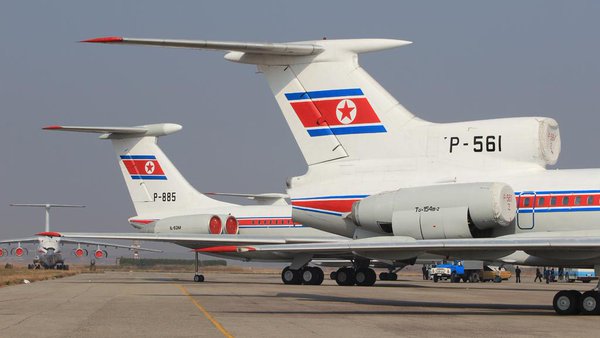Thursday, July 27

PYONGYANG’S EMPTY PLANES
US to announce ban on citizens travelling to North Korea

The US government will file a ban on citizens travelling to North Korea, which will come into effect in 30 days. This decision closely follows the death of American tourist Otto Warmbier soon after his release from North Korean labour camps.
Roughly one thousand Americans tour North Korea annually, and of the three remaining prisoners held there, two were professors at Pyongyang University of Science and Technology. Along with Warmbier’s passing, recent events have discouraged tour groups from taking Americans to the isolated country.
The local tourist sector plans to revitalise the “Wonsan-Mount Kumgang International Tourist Zone,” built originally near the southern border for cross-border tourism. South Korea halted tourism after a citizen’s death in 2008, and the town is now intended for the hundreds of thousands of annual Chinese tourists.
Throughout this diplomatic crisis, Pyongyang has officially insisted that it “[doesn’t] care at all.” The public manoeuvre aims to change this, pressuring North Korea’s leadership and slowing the influx of foreign currency.
ANOTHER BRIC IN THE WALL
Indian, Chinese security chiefs meet amid border row

Indian National Security Adviser Ajit Doval and his Chinese counterpart Yang Jiechi will both attend a high-level security dialogue among BRICS members in Beijing today. Many speculate they will discuss the standoff at Doklam Plateau.
The Chinese army’s road construction in Doklam (disputed by China and Bhutan), near a vulnerable area of India, has prompted Indian military occupation on the Bhutanese side for its own security. New Delhi has demanded Beijing leave the area and start peace negotiations. China, in turn, wants India to withdraw its troops from the area first, warning India not to “push [its] luck”.
To resolve the deadlock, 19 high-level talks have occurred between Doval and Jiechi since June, so far to no avail. Instead, tensions are growing; Chinese Colonel Wu Qian has ordered increased troops and exercises near India’s border, while India has mobilised an additional 10,000 troops ready for deployment if necessary.
Prolonged border skirmishes are common between the two powers, though, and despite a diplomatic standstill, Modi seems to prioritise economic and business ties for September’s BRICS summit.
PUTIN ON A SHOW
Russia’s president to hold talks with Finnish counterpart

100 years after Finland declared independence from Russia, Vladimir Putin heads to Helsinki today for talks with counterpart Sauli Niinisto.
Despite the ongoing disputes between the West and Russia, Finland seems determined to maintain its good standing with the Kremlin. While Helsinki has condemned “the illegal annexation of Crimea” and backs EU sanctions against Russia, it has a vested interest in keeping the dialogue with Moscow alive.
Sharing an extensive 1,300-kilometre border with Russia and lacking the security blanket of NATO membership, Finns could be excused for expressing security concerns. Regardless, a majority of Finns do not support accession to NATO because of a deep-rooted belief in military non-alignment. Mr Putin did not hold back his view on the issue, saying that “NATO perhaps would gladly fight with Russia until the last Finnish soldier”.
Besides the security aspect, Finland exports some $3 billion worth of goods to its eastern neighbour, which is its third largest trade partner. Expect the visit to produce some economic deals, but no meaningful initiative on changing the precarious security situation.
HAPPENING ELSEWHERE…

Arab foreign ministers will meet in Cairo for emergency talks on tensions in Jerusalem. The installation of metal detectors at Islam’s third holiest site, the al-Aqsa mosque, sparked violent protests last week. On Tuesday, Israel’s government announced it would remove the detectors and install “new technologies” over the coming months, including high-tech CCTV systems. Ministers gathered in Cairo will brand Israel as the provocateur—perhaps the only issue all Arab states can still rally around. The Egyptian hosts, along with their Saudi, Emirati and Bahraini counterparts, still refuse to hold official talks with Qatar; today’s summit might provide a forum for less formal discussions on the sidelines.

